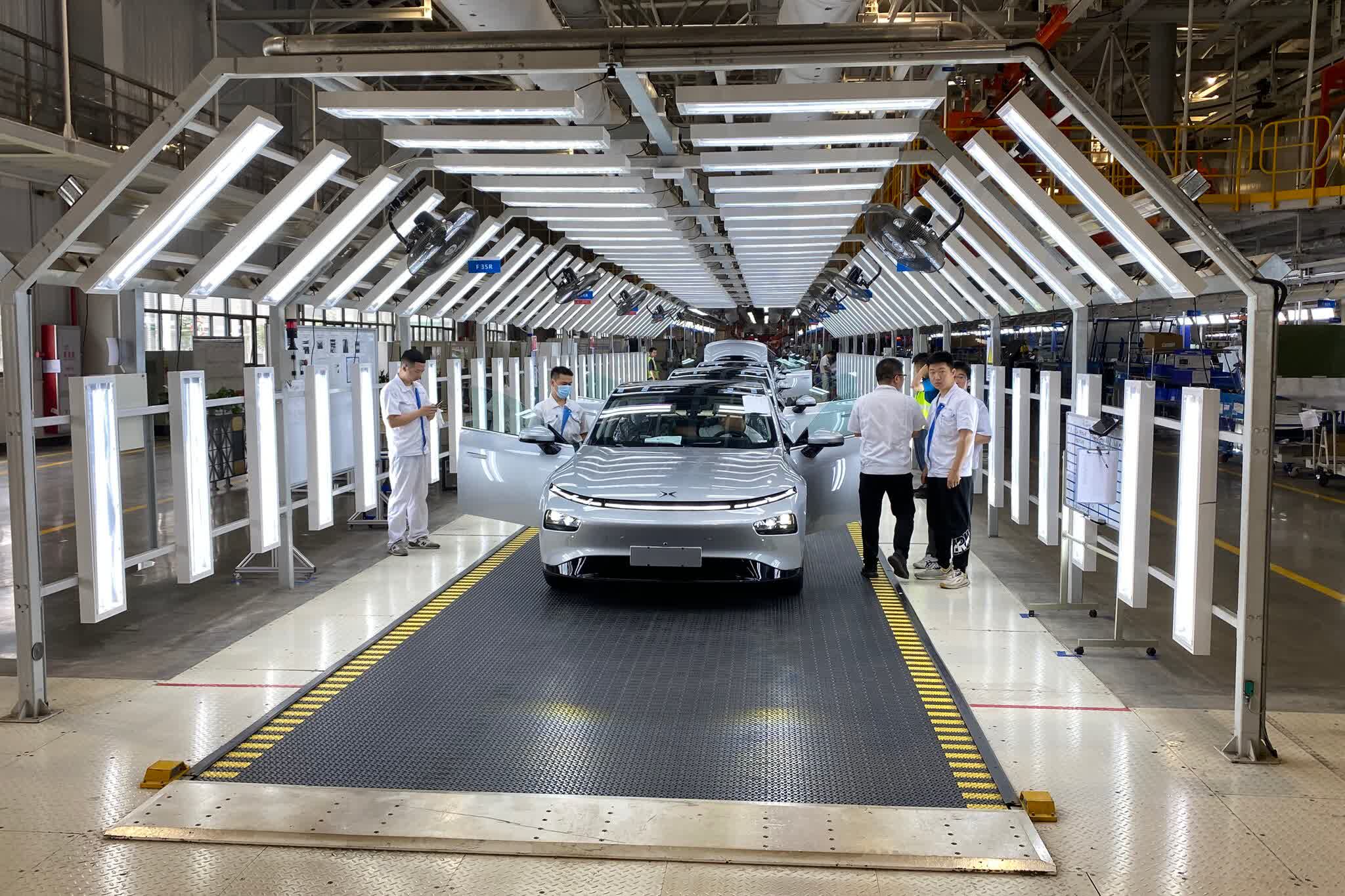Editor's take: We first started studying China's electric vehicle market because of its importance to semis, but have become increasingly fascinated (some would say obsessed) the more we learn. Autos are an important industry for any developed economy and China's EV market bears many of the hallmarks of an industry that could someday become a major global player. If current trends continue, China's EV makers will be important not just to the semis market, but to the global economy.
A combination of factors make it interesting. First is its growth rate. From 500,000 units in 2017 to an estimated 6.5 million units in 2022, the industry has clocked in a 63% CAGR, and looks set to continue growing in healthy double digits for at least the next few years.
China's policy makers are sending all the signals that they favor the industry for a host of reasons, so even if they curtail explicit subsidies as they are doing now, there are still many other ways that the government will grant favorable treatment to the sector.
Editor's Note:
Guest author Jonathan Goldberg is the founder of D2D Advisory, a multi-functional consulting firm. Jonathan has developed growth strategies and alliances for companies in the mobile, networking, gaming, and software industries.
Another important factor is the sheer diversity of suppliers. This report from Technode lists 30 EV makers, which is probably the same number for EV makers from all other countries combined. China's development model seems to do well with this sort of near-anarchic market fragmentation. We have seen similar patterns there across many other industries. For example, China once had 1,000 handset makers and today probably has 2,000 semiconductor companies.
"... the pattern seems to be sponsor a large number of companies, then let Darwinian commercial forces play out across the sector, ultimately winnowing the number down to a handful of battle-hardened champions, who are then ready to compete on the global stage"
Commercially, this makes little sense, but those other industries demonstrate that this approach can yield benefits to the broader economy. Government planners want to encourage growth of an industry, but rightly recognize that they should not be picking winners. Instead, the pattern seems to be sponsor a large number of companies, then let Darwinian commercial forces play out across the sector, ultimately winnowing the number down to a handful of battle-hardened champions, who are then ready to compete on the global stage with tested supply chains and supplier ecosystems. China's EV market today shows all the signs of following along with that playbook, and it will be fun (and important) to follow this process through to that conclusion.
Finally, we think it is important to keep sight of these companies' export ambitions. Some of the biggest EV makers have been very busy building out their global dealership and logistics networks. Again, this is very similar to China's handset makers, who balanced strong local support at home to establish export markets around the world. If this model plays out as we suggest above, in a few years, we are likely to see China EVs with a massive share of the global EV market.
That all being said, none of this is certain.
To put all this in perspective, EV sales in China are still fairly small. They contributed about 25% of total car sales in China in 2022, still a small portion. The global auto market has fluctuated during the pandemic between 65 million and 88 million vehicles, so China's EV sales are less than 10% of total global car sales. That is a big number relative to where they were a few years ago, but is not yet a big number relative to the overall market.
There are also plenty of reasons to doubt the narrative around EVs entirely displacing traditional gasoline engine vehicles. Much of the growth to date globally has stemmed from government support, policies which are tapering off everywhere. There are also plenty of legitimate questions around how environmentally friendly EVs are. We have seen studies which show that an EV driven in China on electric power generated by coal-fired plants are actually more carbon contributory than hyper optimized gasoline engines driven in most developed economies.
There are also plenty of reasons to doubt that China's survival-of-the-fittest model for picking winners will result in a desired outcome of a few competitors at scale. The capital costs of building cars are punitive, and so we could very well end up with a few dozen sub-scale competitors, too small to grow globally, but too important to local economies to be allowed to rationalize.
There are also very real geopolitical concerns. The first of these risks are already manifesting in the form of US chip sanctions. So far, the EV industry is largely untouched by these, and most of the parts they need could be purchased from domestic vendors. Despite this, it is not too hard to see the sanctions spreading further and potentially creating supply chain constraints.
An even greater wave of problems is looming far distant on the horizon. Many readers remember the 1990's rise of Japanese auto companies who outcompeted US car makers and took massive share around the world. This led to a wave of hysteria about Japan taking over the world. They made movies about it (more than one, none good). And Japan was an allied, friendly country. There will be a significant backlash against Chinese automakers, governments care a lot about the industry, and people are already fairly paranoid about China's ambition. This is not yet in the headlines, but will be fairly soon.
Despite all this, we still think this an industry worth watching. The Chinese EV market is already showing a new way to build cars, or at least new ways to build supply chains for cars. We have speculated in the past about how car manufacturing may (or may not) come to resemble electronics manufacturing, with a highly decoupled, highly outsourced model.
If history is any guide (a reasonably big if) then this could give these companies a big cost advantage, and long before any regulator steps in would force non-Chinese companies to shift their models as well. Just the fact that China OEMs are going down this path makes for a "pipe cleaning" behind which other companies can "draft," taking advantage of the new, emerging electric supply chain. This may not mean much to Ford or Daimler, but is likely to open eyes in other countries as to the realm of the possible (looking at you India). Our thesis is that China's industrial development policy can be viewed as a loosely controlled set of experiments. These processes have ways of forcing change far beyond their borders.
Which leads to us to the subject of autonomous vehicles. We deliberately left this for last because everything above is going to happen before we reach high-level autonomy, but many of the lessons still hold here. Many, if not most, of China's EV makers are exploring autonomy - some superficially, many very deeply.
Autonomous cars will obviously change the market radically. But as it stands today it is highly unclear when that will happen, and there are many who argue that it will take decades. Assuming it happens some time sooner than never, there will be a sharp divide between those who can achieve it and those who do not. Someone who shall not be named (but who runs an EV company and a social media company) holds that autonomy will be a first past the post winner-takes-all market. We think it is more likely that there will be a number of companies who reach it close to each other and will share the benefits among that small group. If that is true, it is very likely that among that small group will be a Chinese company.


